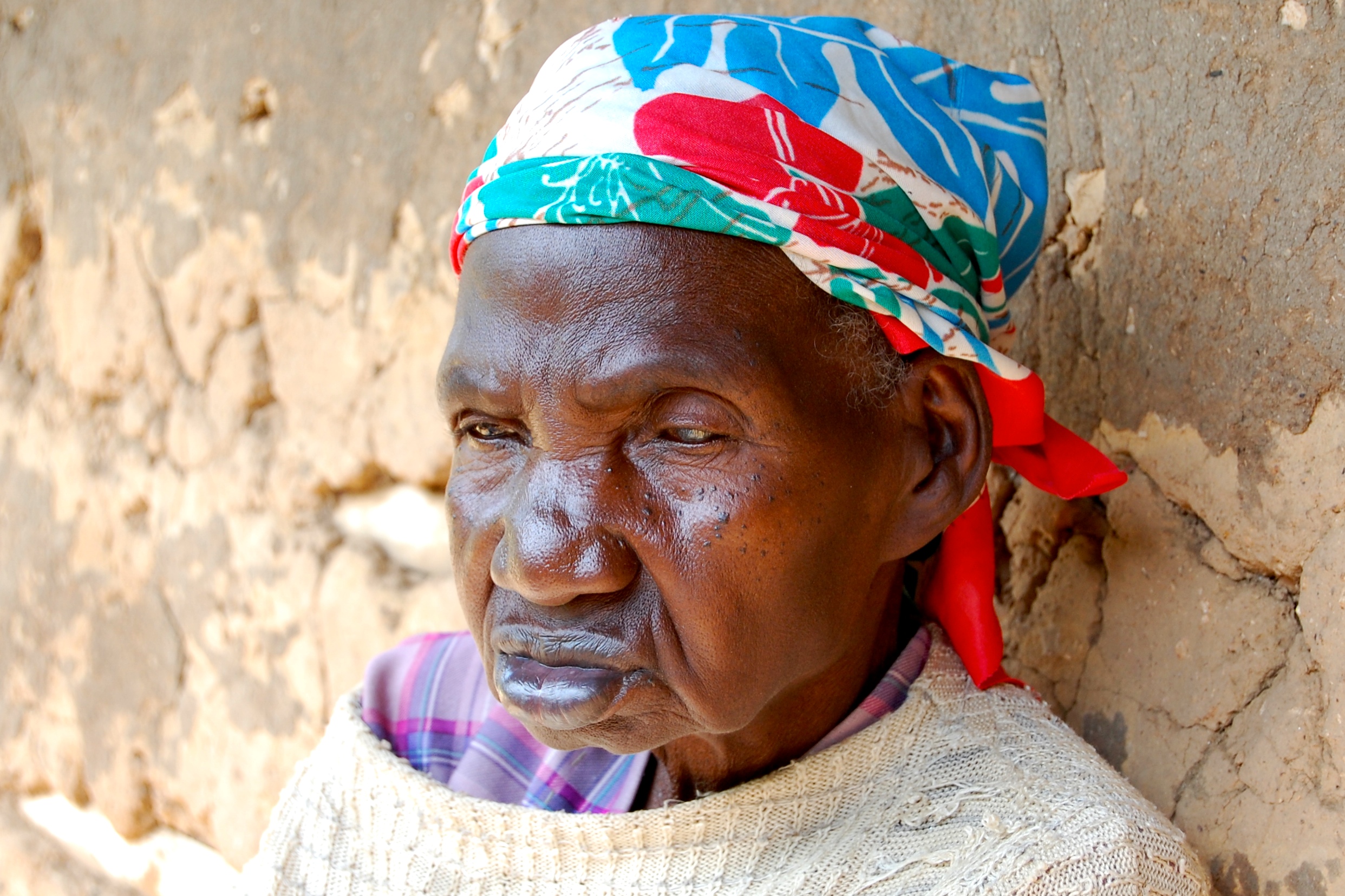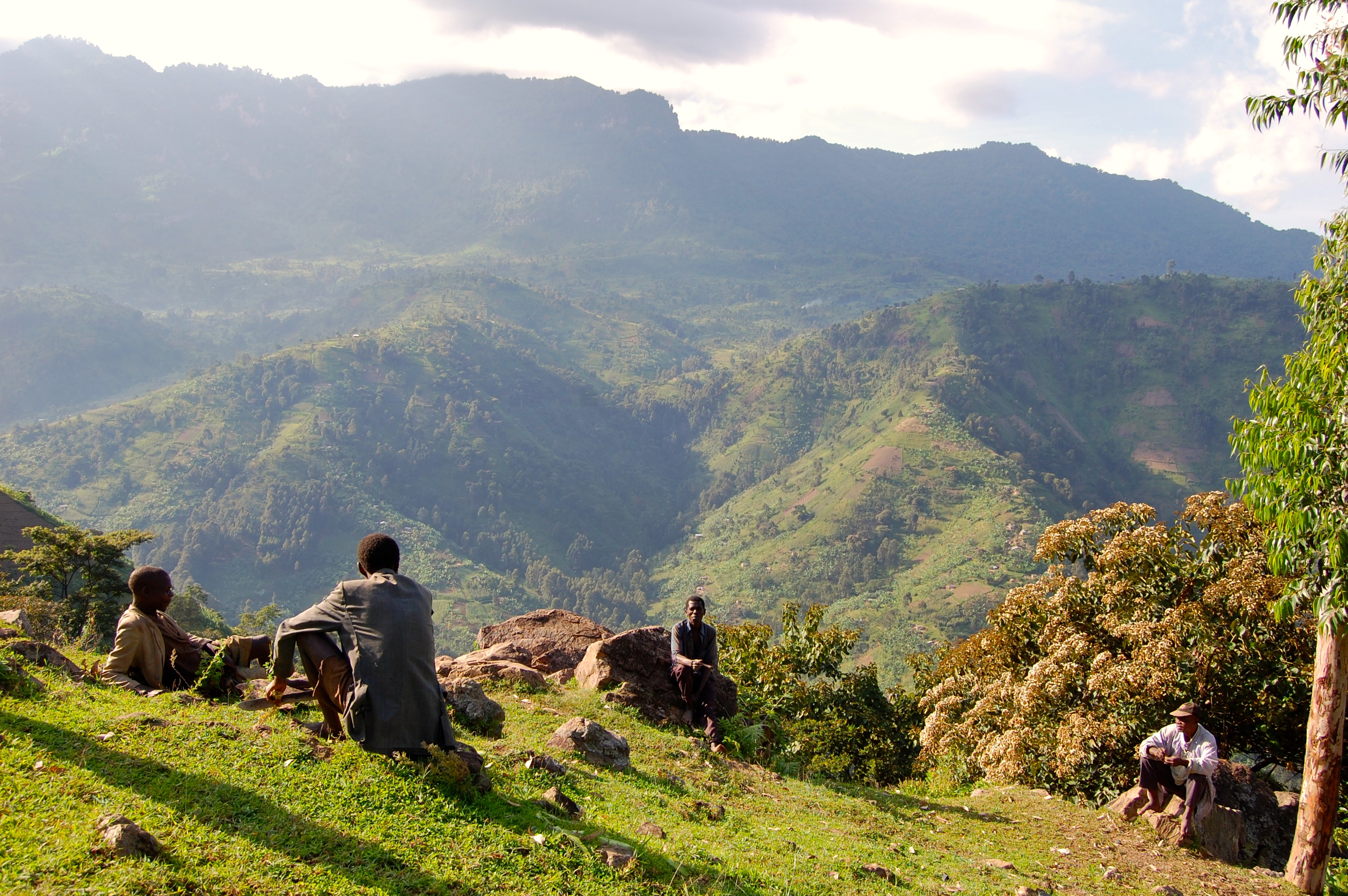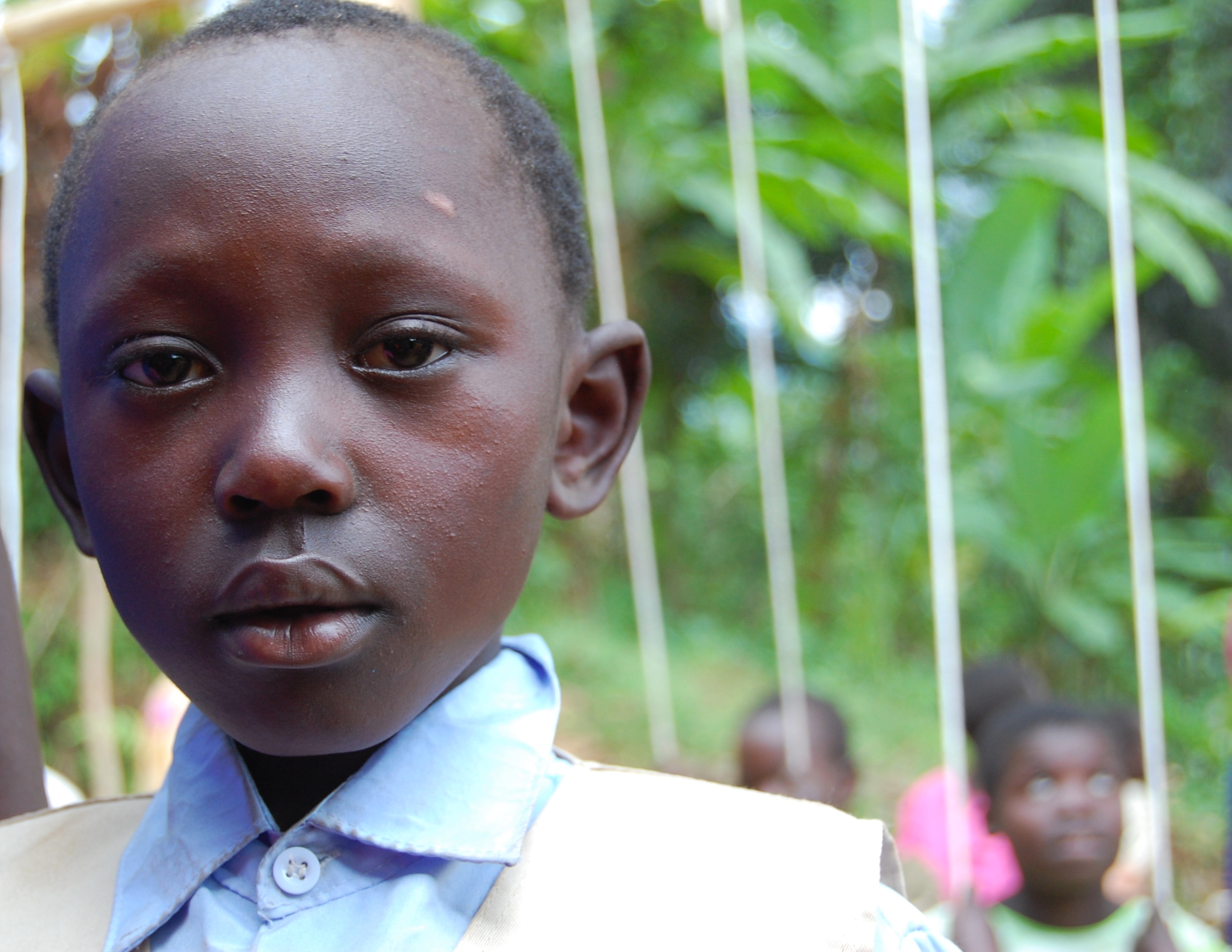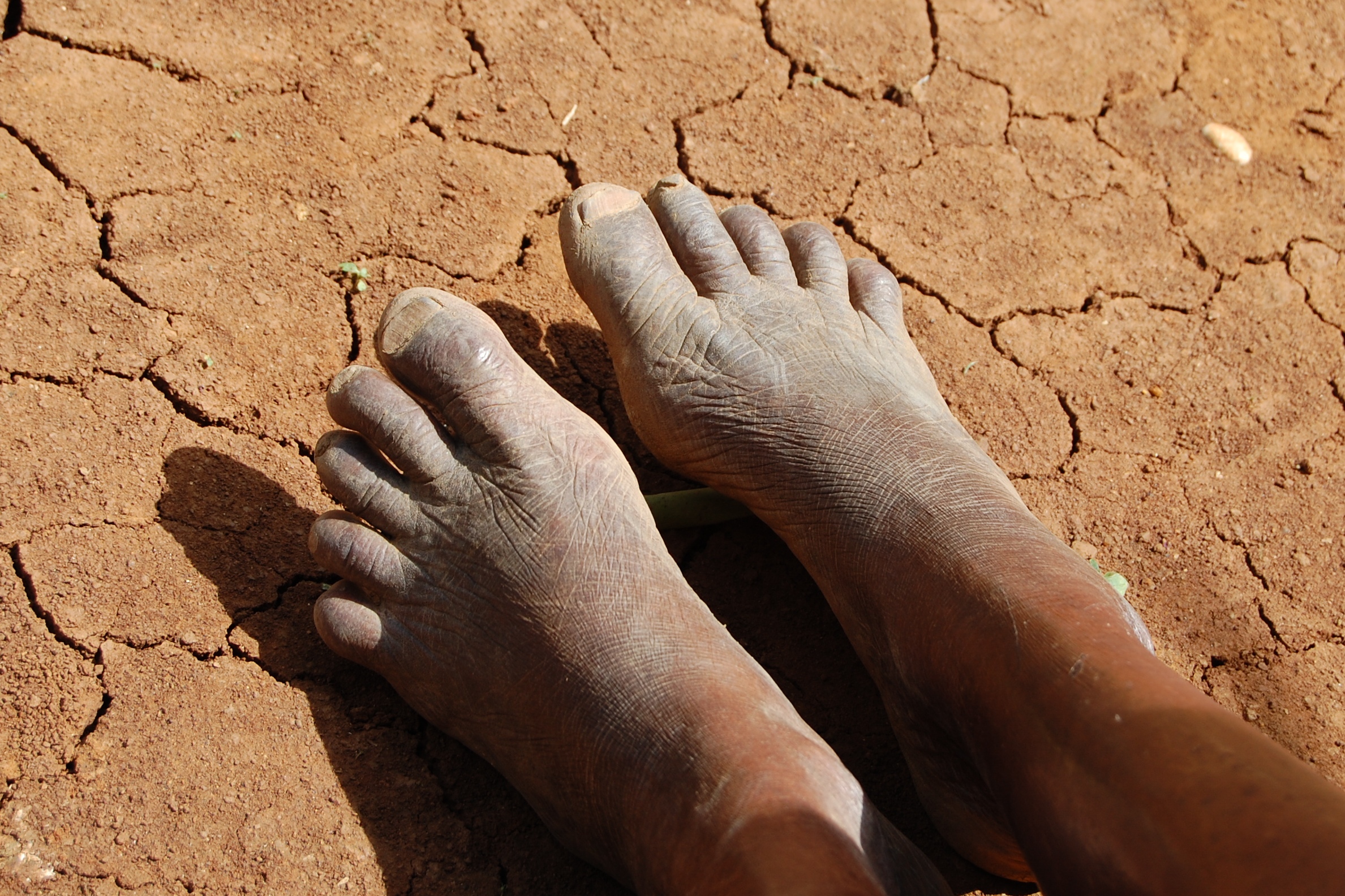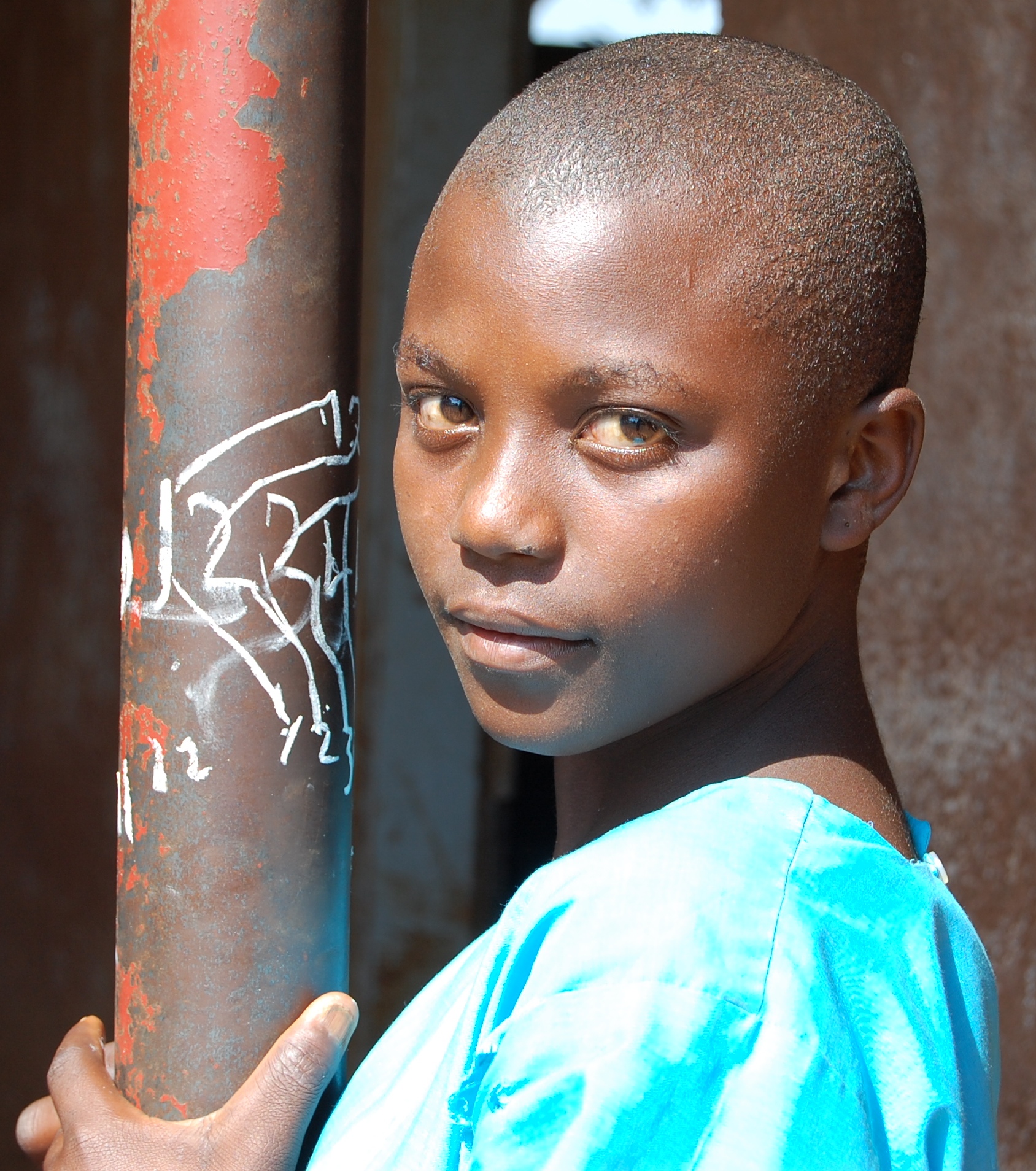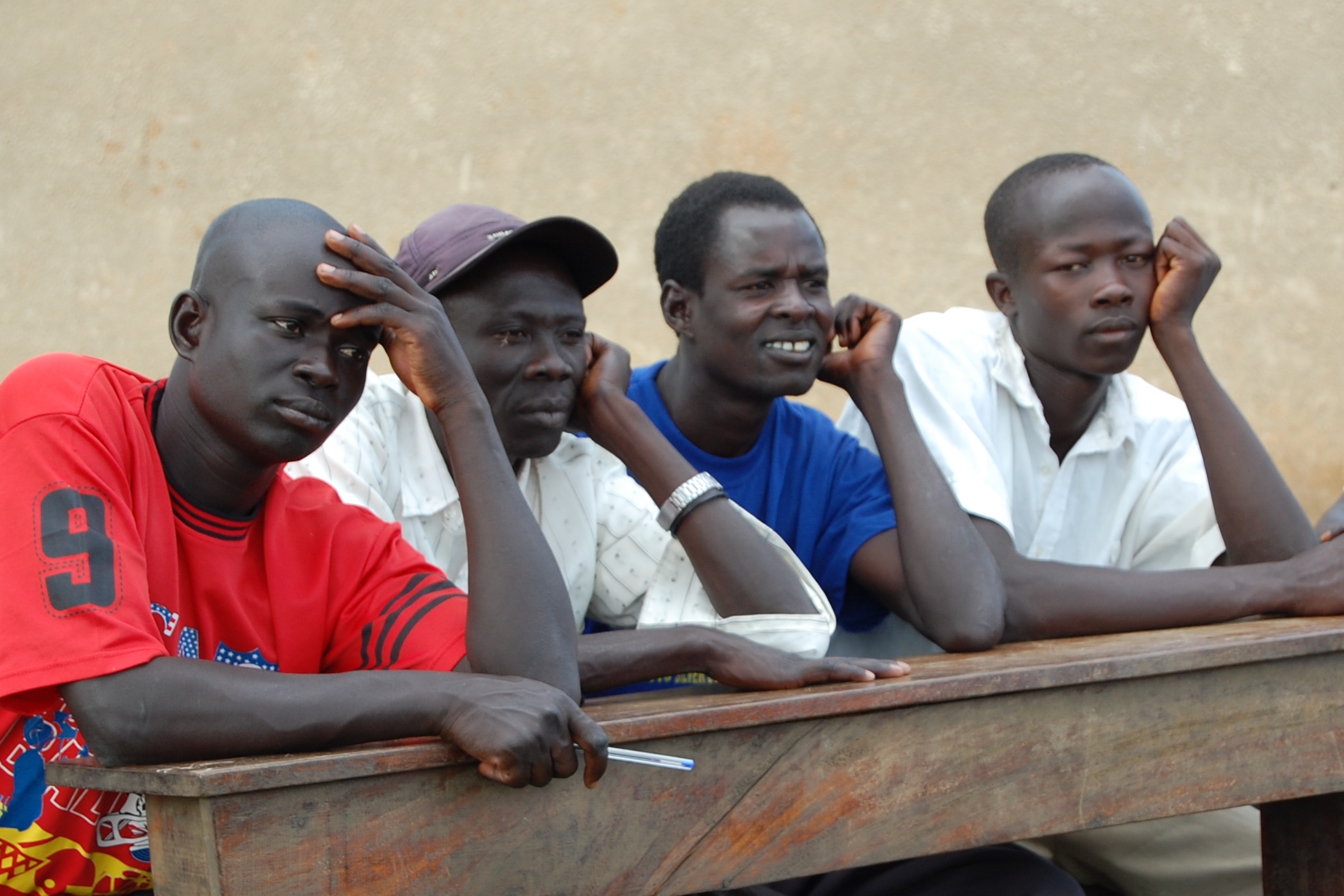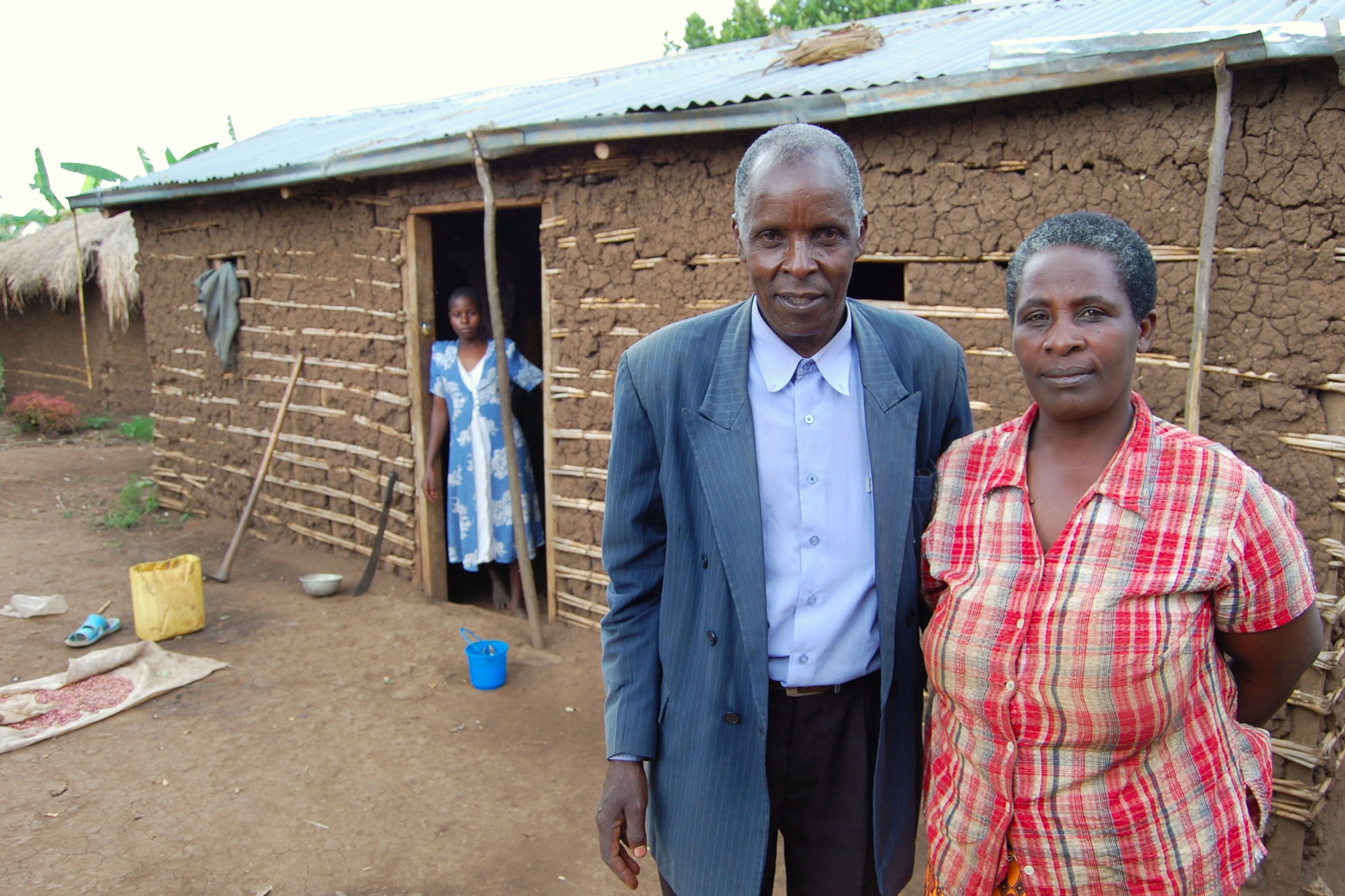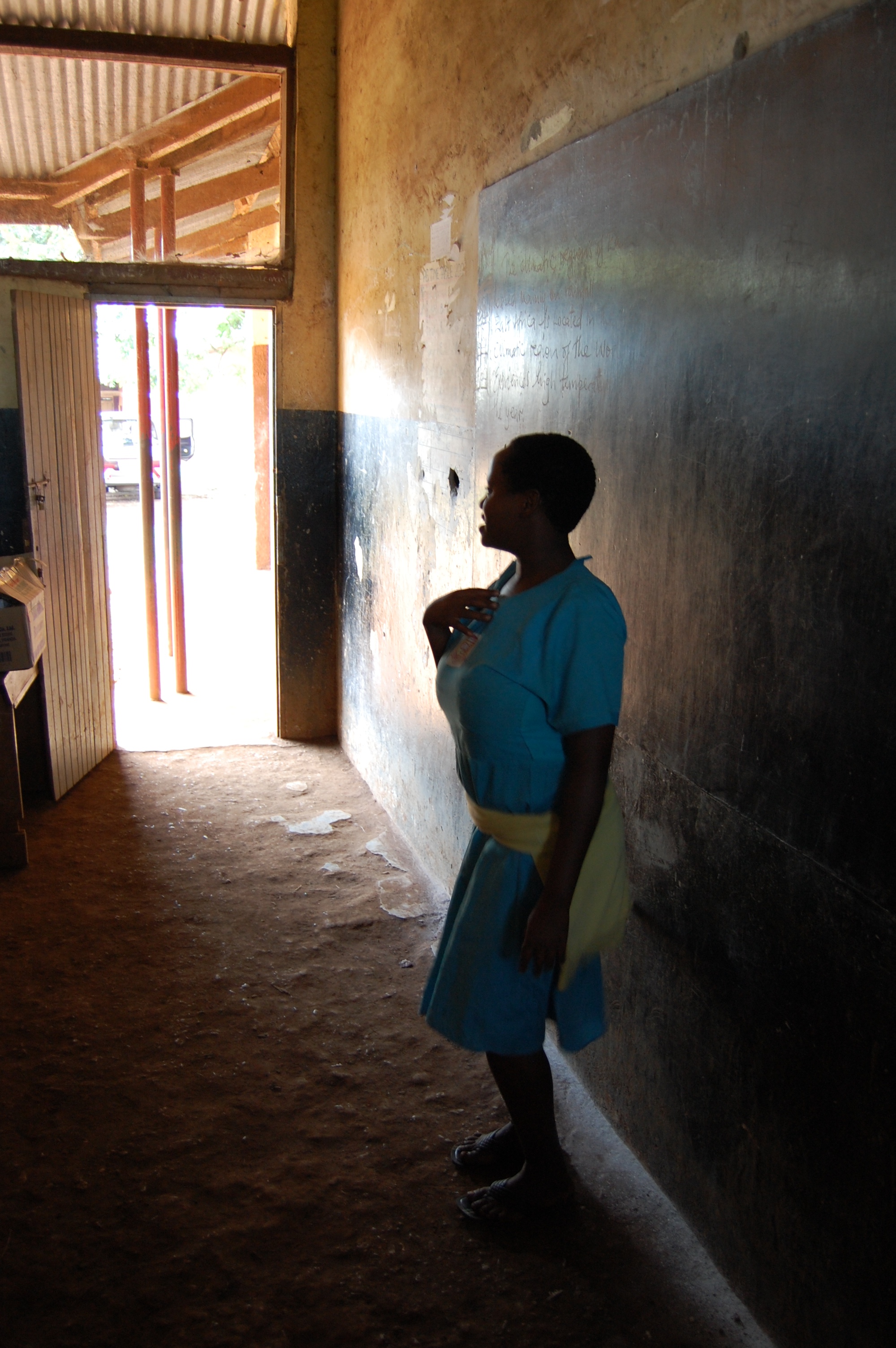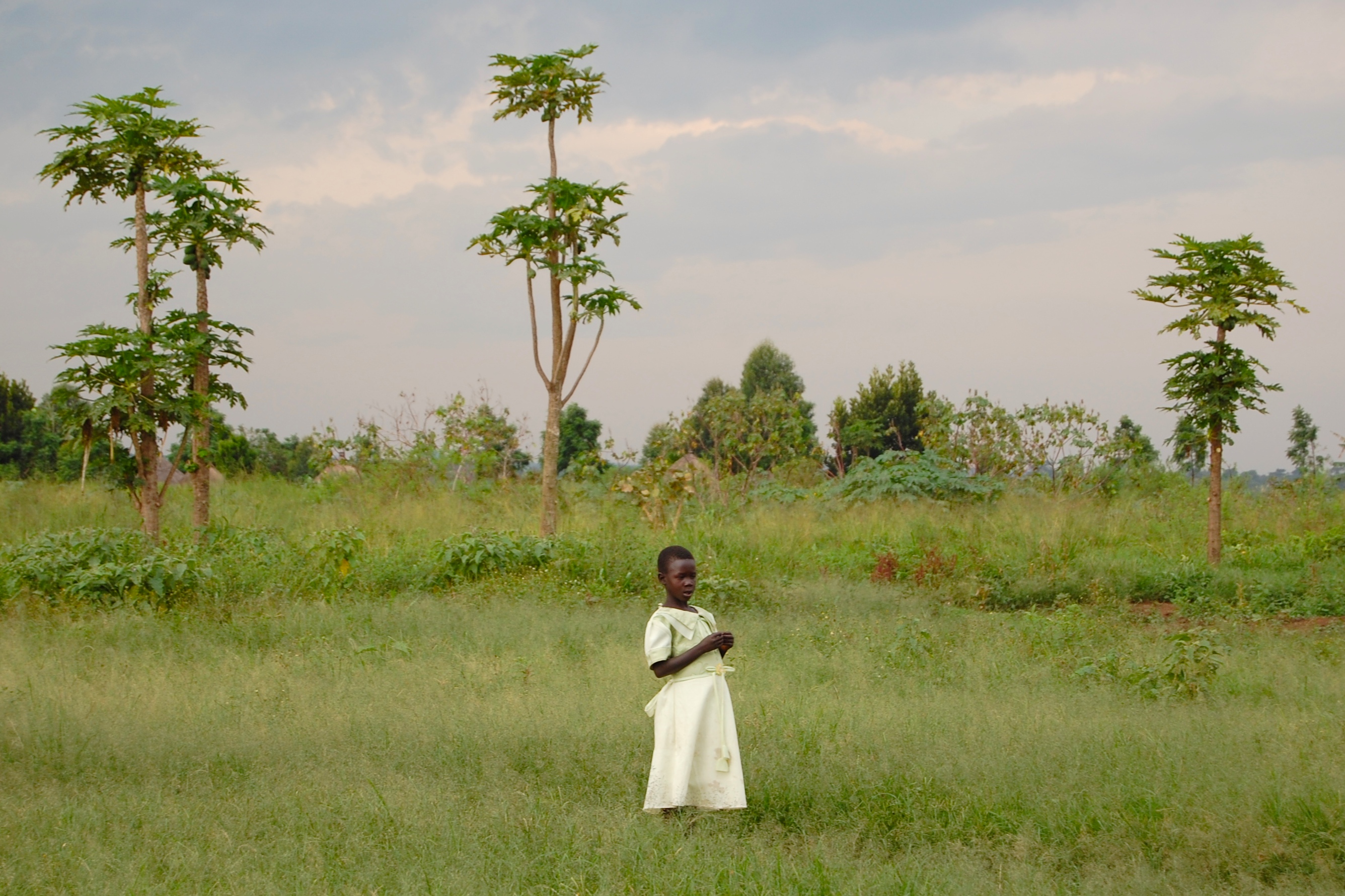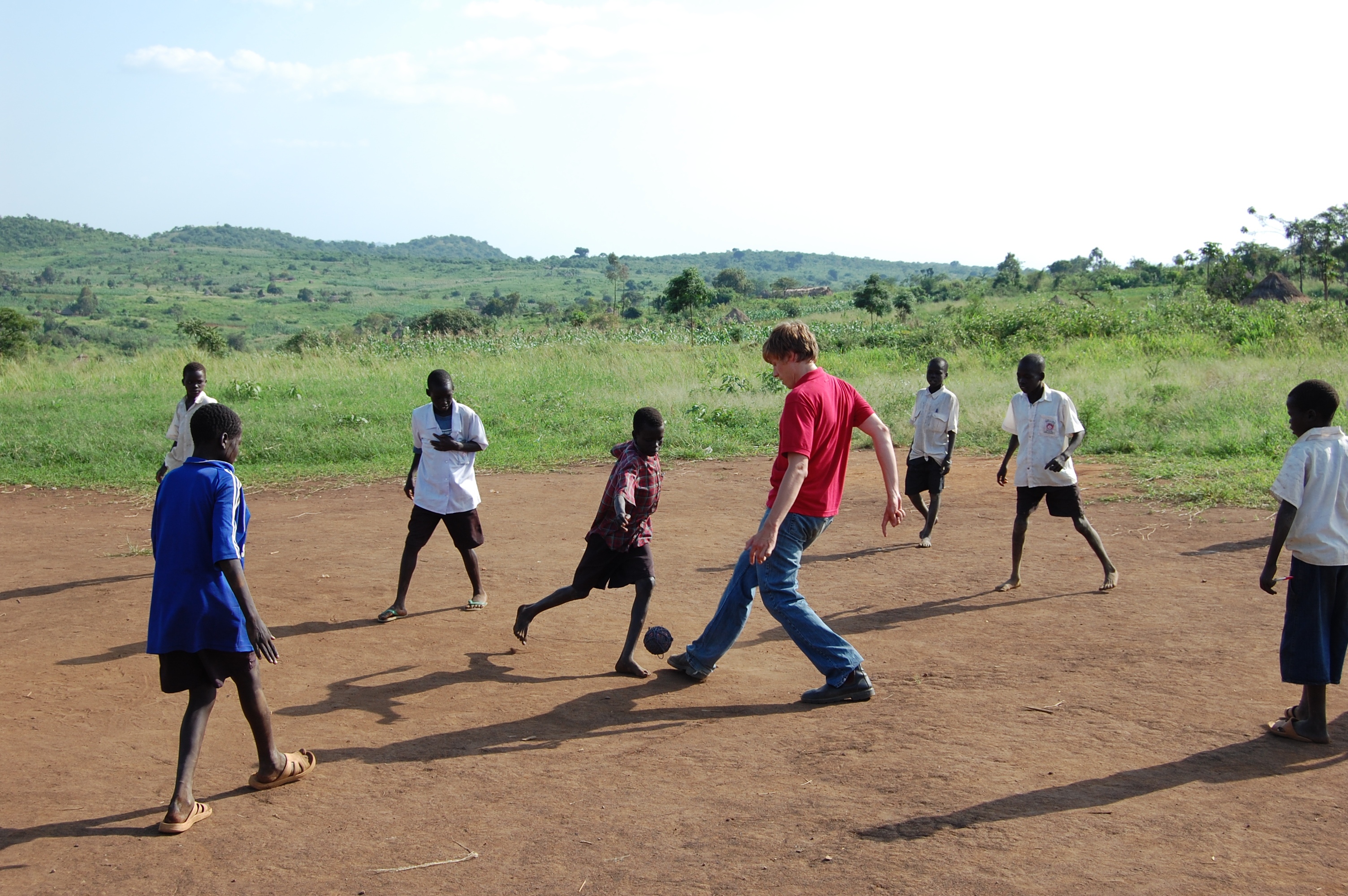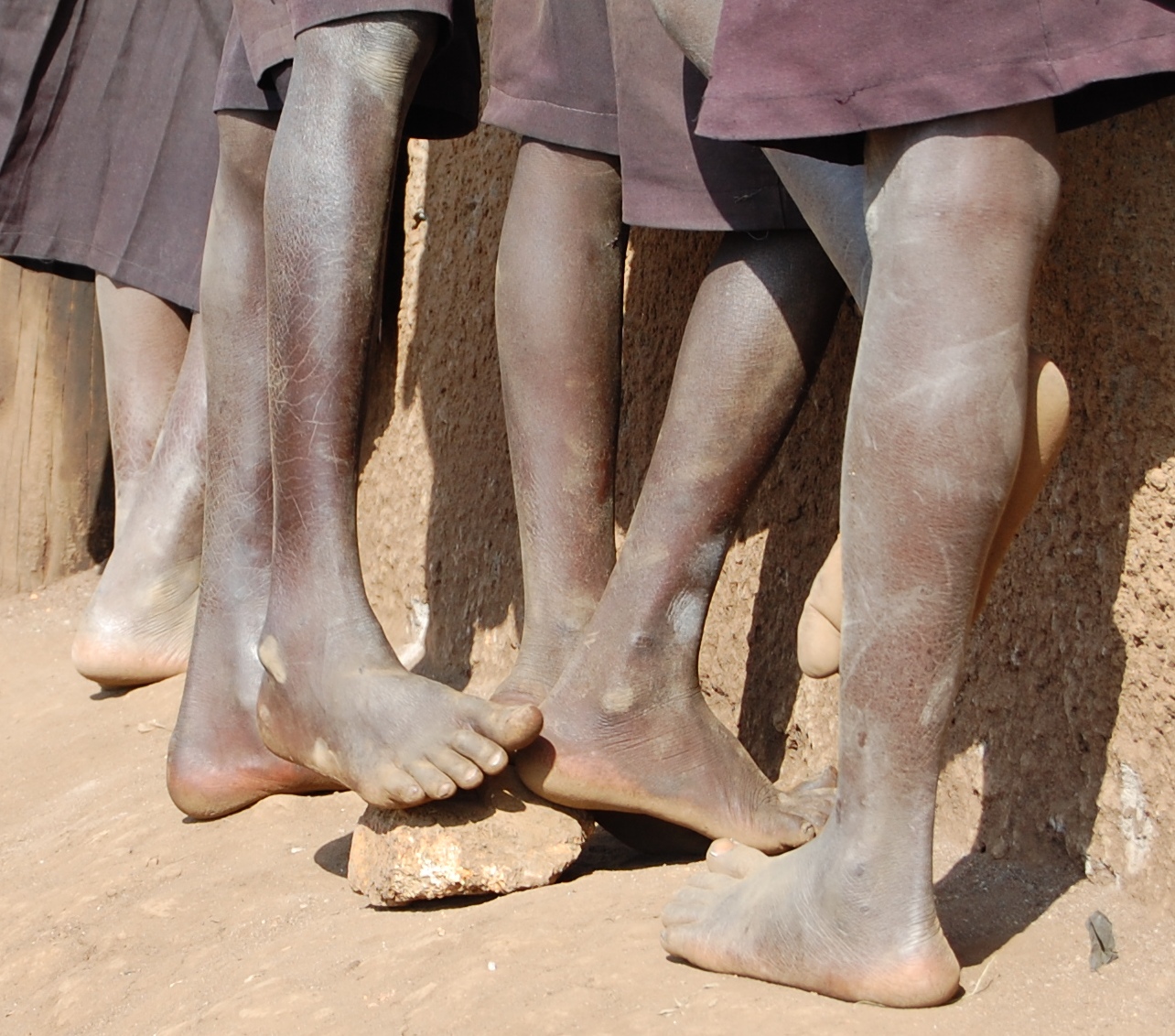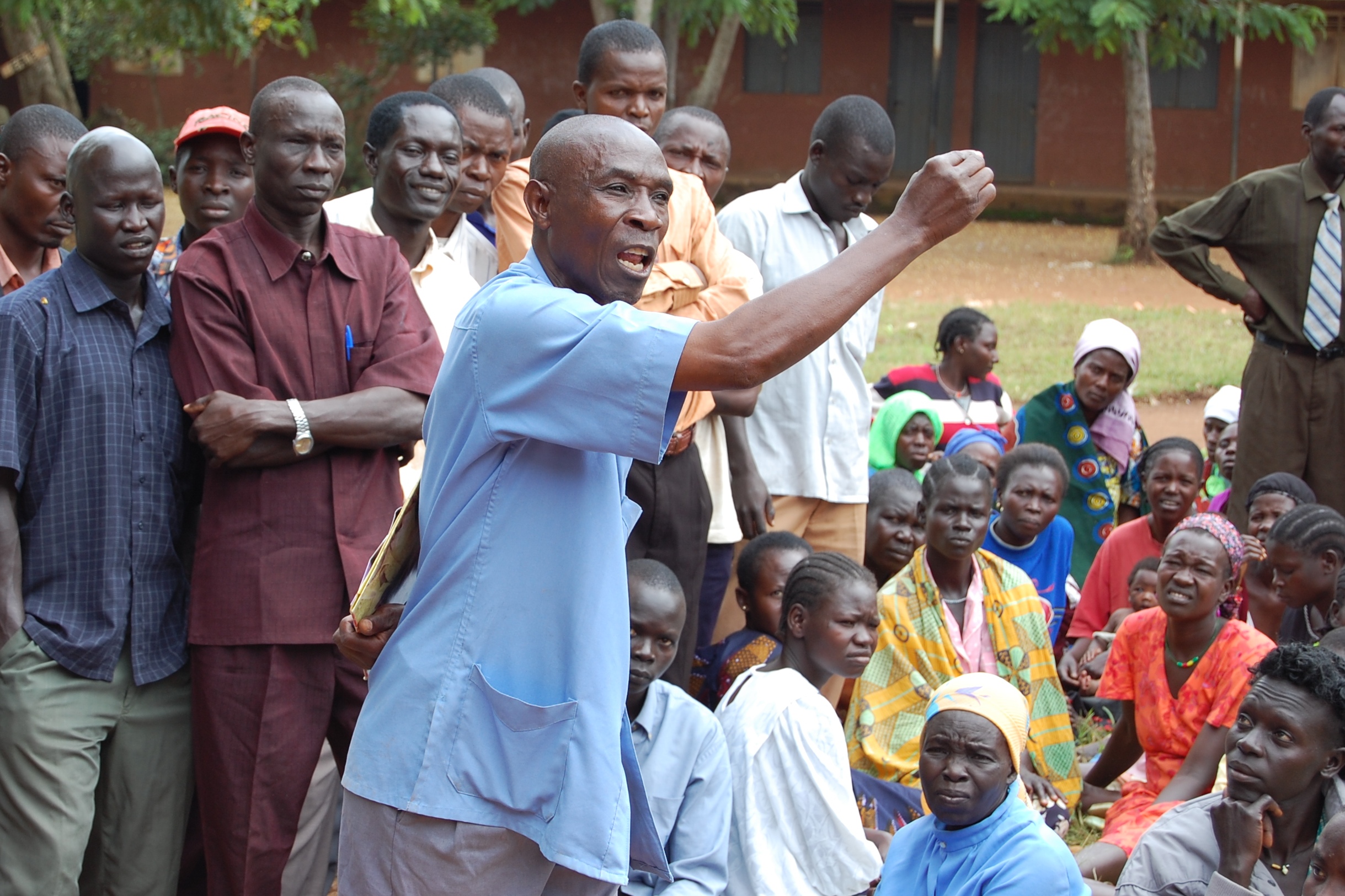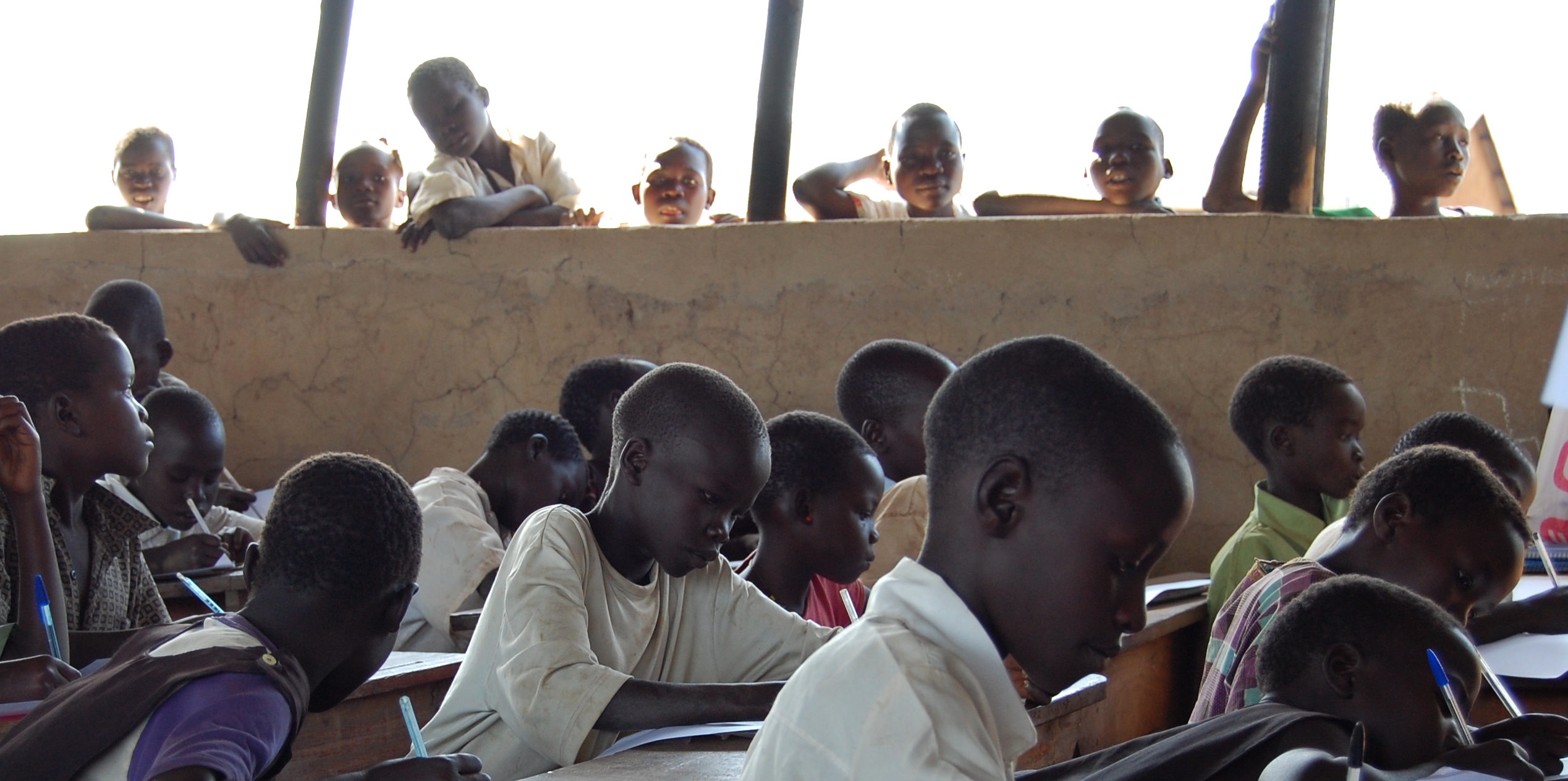The 56-year old woman – ancient, by African standards – sits cross-legged on the grass in front of me, under the shade of a mango tree. She is a refugee from Sudan. She holds her palms up to show me her thick calluses, to prove that she must do all the farming now that her husband is too sick and elderly to work. Every day she has to bathe him. There are also 7 children to care for. Her face is creased, her skin dusty. A series of triangular scars on her forehead. The interpreter tells me they are characteristic of the Dinka tribe, a kind of identifying badge.
I ask her why she has come to talk to me. She says she has no problem a lawyer can solve. Inside I sigh – today I’ve had too many people with problems I can’t solve. Over the past two weeks of 12 hour days I feel I’ve started to become too hard, a bit too inhuman. I am the only white person in a camp of 20,000 and refugees follow me everywhere, expecting perhaps that I have a couple of flight tickets to Canada tucked in my back pocket. We are staying in the camp church, and every morning I come out with a towel around my waist to find refugees camped outside my door. At one point I even gather around a crowd and tell them I’m not a lawyer, that they should go talk to one of the other team members (all Africans) who are in fact my bosses, that just because I’m a mzungu it doesn’t mean I have “magic powers.” They all laugh at this – at least I got a few smiles – but no one goes anywhere.
It’s not the horrific stories that wear you down so much, but having to tell so many people each day that there is nothing I can do for them. We’ve come to report on the human rights situation in the camp, as well as help some refugees who have tangible legal problems we can solve. Criminal accusations, land disputes, problems with the authorities – things like that. I’m tasked with doing intake of individual refugees, identifying potential cases. My everyday makeshift “office” is a patch of shade under a mango tree next to a primary school. Nearby, giggling girls in pink-uniforms play some kind of handball at recess – after staring at me for a bit.
The “camp” is not in fact a camp, but a “settlement,” I am told more than once. Each refugee is issued a small plot with a field to cultivate crops. The government has a “self-sustaining” refugee policy in which the 300,000 refugees in Uganda are expected to provide for themselves (after being given land and some initial assistance). The result is actually quite an idyllic-looking village with lots of space and greenery, dotted with mud huts with reedy rooves. Not the tightly-packed rows of tents I was expecting. Some have been living in such settlements for decades. But grave problems persist, not the least of which is that every last inhabitant seems to suffer from PTSD. All live in absolute poverty.
I issue those who come to sit around my tree little slips with numbers on them and my signature. The first few days when I didn’t, it was chaos. A few times someone comes up with a fake slip, and I rip it up and call them a liar. They slink away, and then later I feel bad for snapping at someone who is more desperate for help than I ever will be.
90% of those I talk to essentially want “resettlement,” the buzzword for being sent to what is seen as paradise: Canada, the US, Europe or Australia. Typically this can only be done if the refugee cannot live a secure life in the country of asylum – perhaps they are still being pursued by their persecuters there. But the demand is overwhelming and it is usually impossible to tell which claims are genuine. Sadly, humanitarian agencies are overwhelmed by exagerrations and fabrications, real solvable problems getting lost in this mass of desperation. A general mistrust of refugees pervades the NGO community. A UNHCR representative I meet calls resettlement a “poison” in the system. My colleagues warn me to fight this creeping suspicion, but every night we all chuckle at some of the more outlandish stories.
So whenever what looks like a resettlement request comes up I tell them my organization can’t help them, that we are mandated to improve the lives of refugees in Uganda, not to try and ship them out. Crushing so many hopes takes a toll. Every day a few cry. I start to get annoyed, exasperated. Occasionally I yell at refugees following me, the ones who try to thrust letters in my lap as I eat lunch.
At least this old lady before me has warned me that I won’t be able to help her. She doesn’t ask for resettlement. She only says that she wants to tell me her story so that when she dies someone will remember it.
Debora lived in Mading Bor. She was a Dinka, a tribe of cattle herdsman inhabiting the vast savannah of southern Sudan. When she was young they carved the angular scars on her forehead, forever indicating her clan affiliation.
As a young woman she wanted to marry another man of the same generation. But her father didn’t allow it – the man was poor and wouldn’t be able to pay the required bride price in cattle. So she was promised to a much older man, the one she bathes every day now.
The younger man felt his honour impugned, which is everything. One day he arrived at Debora’s house. He held the old man on the ground and cut out one of his eyes with a knife. Then he turned on her, beating her viciously. He promised the old man that he would come back to claim the other eye – and to kill Debora.
Together Debora and her husband fled the town. The coming tide of cyclical Sudanese wars pushed her ever southward until she reached Uganda. Now she lives in Kyangwali refugee settlement. Relatives have warned her that if she returns to Sudan, her former husband-to-be is waiting to murder her. In the camp her life is unbearable. There is not enough food to feed her 7 children and the husband is incapacitated. She says she will die soon and asks me to remember her, to carry on her story.
I promise I will, but as I say it I wonder if I actually will. She shouts out something, and grabs my arm, smiling. She begins to tear up as she speaks rapidly. The interpreter whispers in my ear: “She is blessing you, thanking you. She is glad her story will survive outside of... here” He motions to the landscape, to the settlement, to Africa.
Other stories stick with me too. The 10-year old boy in primary school who wanted to be a professional footballer and talked about his alcoholic father – in a free-association art exercise he drew a picture of two people having sex. The children who had been taken away from their parents, had been living outside until they stopped to ask for water at a pastor’s home, filthy and confused. The sad-eyed guy cradling his broken arm, injured in a fight with Ugandans around the camp who dislike their foreign, resource-sucking presence. The Sudanese lady who I thought was motioning for me to take her picture, but was in fact asking for money, and whose photo I kept taking as everyone around laughed. Seeing Congo in the distance across misty Lake Albert. Betty, 18, who was raped by the lakeshore and has a 2-year old baby as a result – her foster family has since tried to sell her to another man. The raft of young widows with families to raise who complain about drunken men knocking at their doors late at night. The woman who told me her father had arranged to have her husband killed – the father had offered him up as repayment in blood for a murder the father himself had committed – and now she is being fought over by several brothers, each of whom promise to kill her should she marry one of the other brothers. The earnest, soft-spoken Congolese pastor, caught up in Lendu-Hema tribal conflict at the camp, who grabs my hand and says just wants to live in “peace,” repeating that last word like a mantra. Jean Bosco, who was enslaved by the SPLA at home, forced to carry manure, tortured and accused of being a spy. The pretty Acholi woman who breastfed in front me and answered my questions with the oddly appealing, melodic “Aaayyy” in place of “Yes”. Mark, who seemed to find me wherever I was in the camp, grabbing my arm and pleading with me to save him because his father had killed someone and the victim’s family was out to get him, an all-too-common story of Sudanese blood feud. The local refugee leader with a leopard-skinned cowboy hat who told me people were out to poison him because they were jealous he had spent 9 months in Japan. Coming upon a man bleeding from his ear after a fight between government soldiers and refugees – a disputed goal in a football game led to a soldier striking him with a baton. The dead-drunk Congolese mathematics teacher whose wife and daughter had been executed and who tells me he simply can’t live much longer – he shows me his blistered hands, explaining that he won’t survive as a farmer. The mother with a 2-year old girl on her back – the infant had been raped by a 10-year old boy the week before. Jane, 17, who had been lured back to Sudan by her uncle only to find that he wanted to force her into marriage – she only wanted to finish school. Susan, the 15-year old rape victim in a torn grey dress, who spoke so softly I had to put my ear to her face to hear her (I got one of the lawyers to take her case). The Sudanese refugees boarding buses returning to Sudan, seemingly gleeful to be going home, but leaving behind those too scared to depart, those stuck in this torturous limbo.
Really, there is too much to say about the visit, which is why I’ve been too shy to even start blogging it. But there is my stream-of-consciousness for now.
